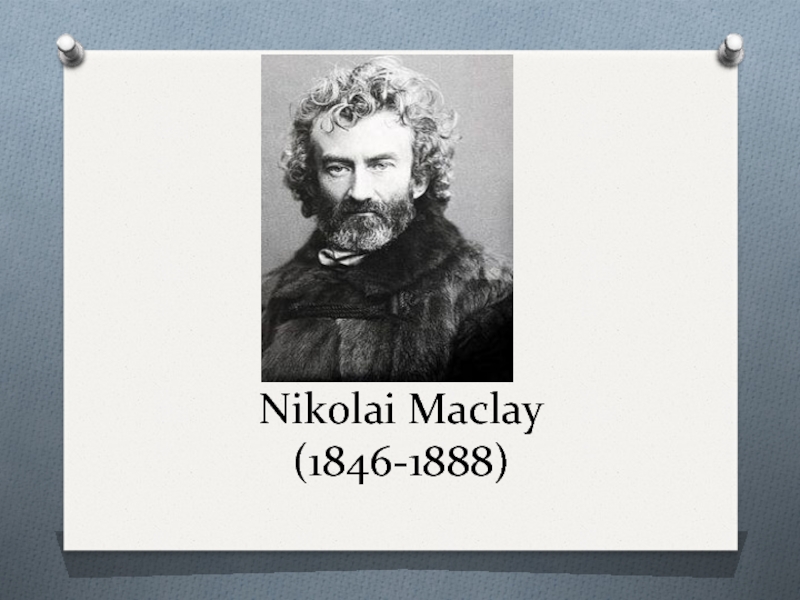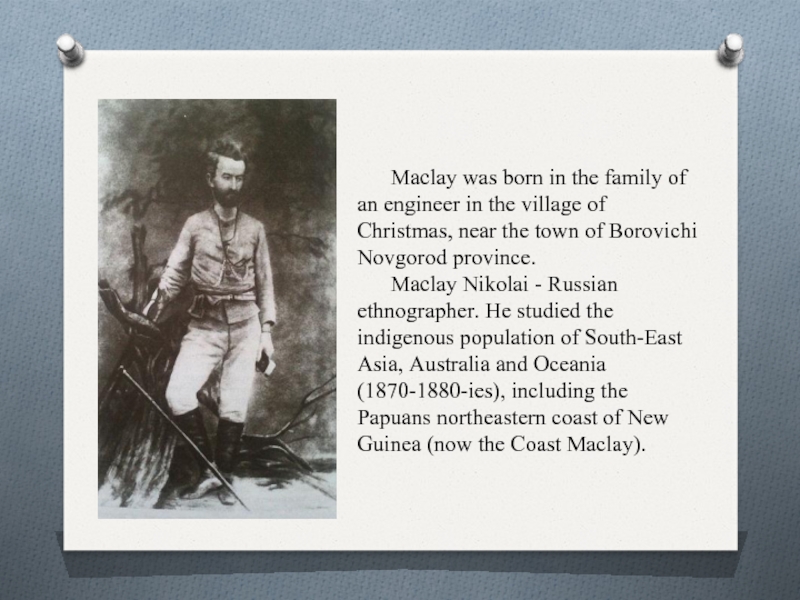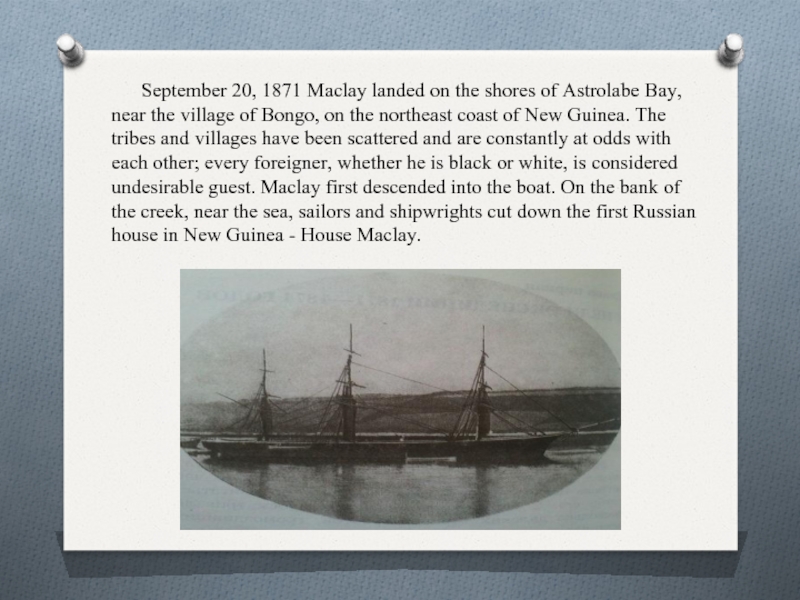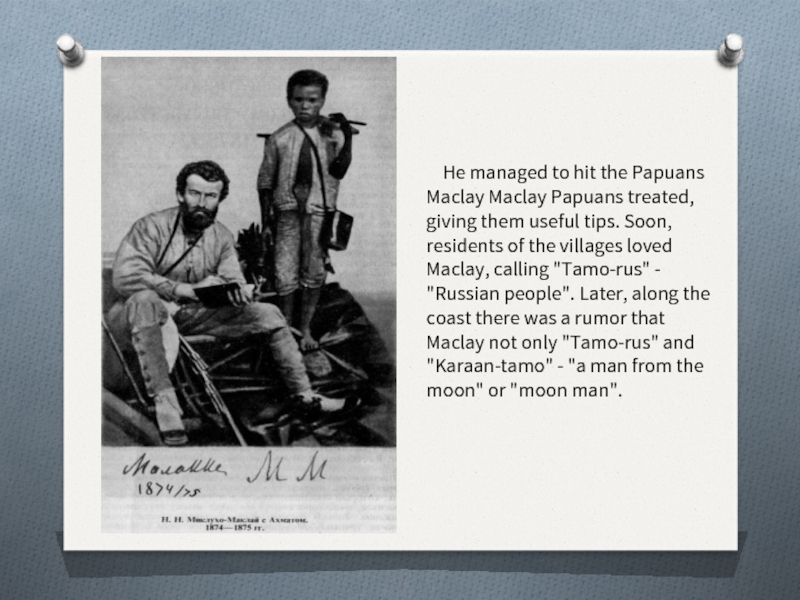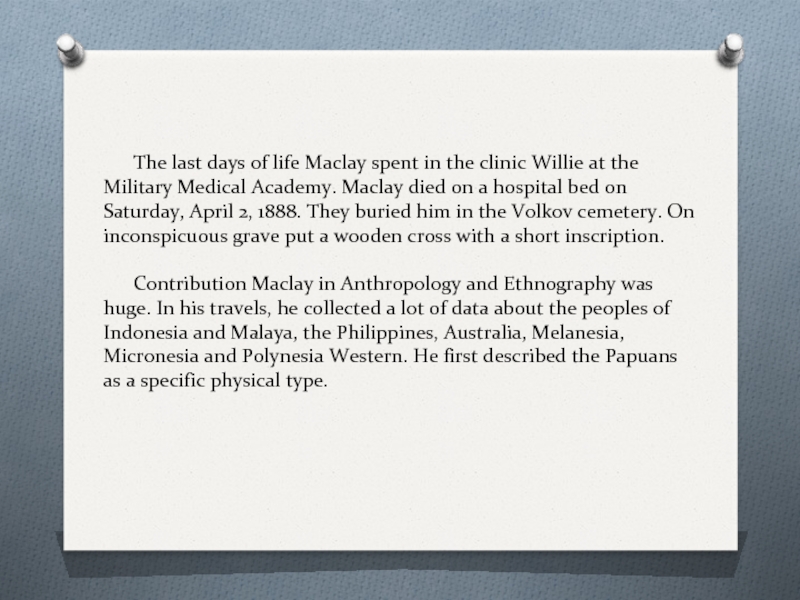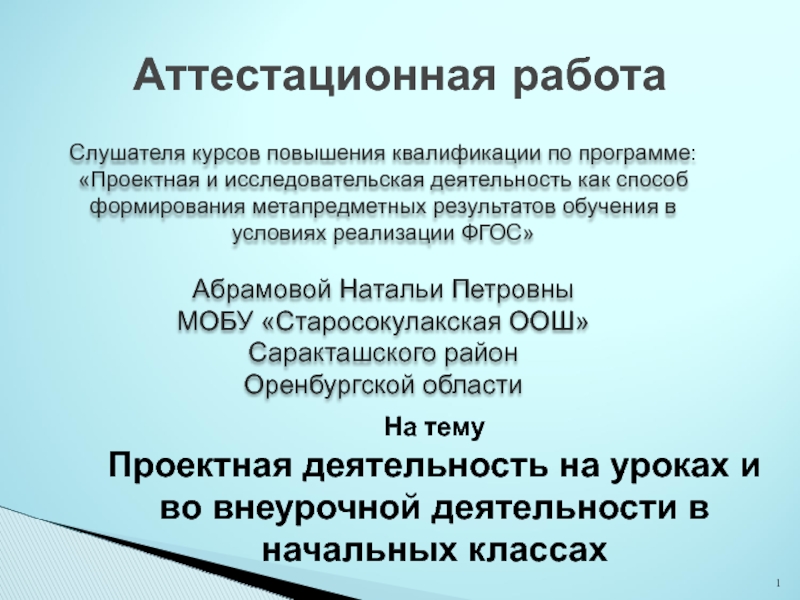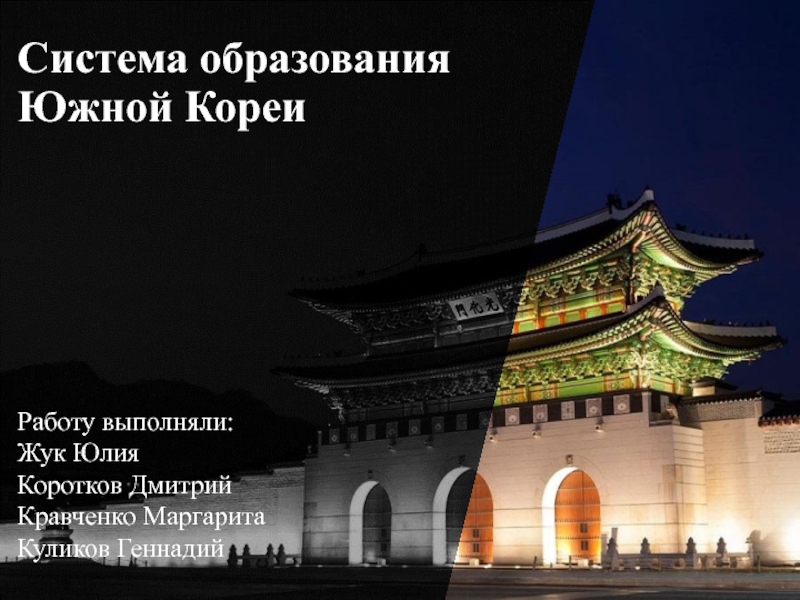- Главная
- Разное
- Дизайн
- Бизнес и предпринимательство
- Аналитика
- Образование
- Развлечения
- Красота и здоровье
- Финансы
- Государство
- Путешествия
- Спорт
- Недвижимость
- Армия
- Графика
- Культурология
- Еда и кулинария
- Лингвистика
- Английский язык
- Астрономия
- Алгебра
- Биология
- География
- Детские презентации
- Информатика
- История
- Литература
- Маркетинг
- Математика
- Медицина
- Менеджмент
- Музыка
- МХК
- Немецкий язык
- ОБЖ
- Обществознание
- Окружающий мир
- Педагогика
- Русский язык
- Технология
- Физика
- Философия
- Химия
- Шаблоны, картинки для презентаций
- Экология
- Экономика
- Юриспруденция
Nikolai Maclay презентация
Содержание
Слайд 2 Maclay was born in the family of an
engineer in the village of Christmas, near the town of Borovichi Novgorod province.
Maclay Nikolai - Russian ethnographer. He studied the indigenous population of South-East Asia, Australia and Oceania (1870-1880-ies), including the Papuans northeastern coast of New Guinea (now the Coast Maclay).
Слайд 3 In 1863 he joined a volunteer at St.
Petersburg University. In 1864, for taking part in student gatherings he was expelled without the right of admission to higher educational institutions of Russia. Maclay went to Germany.
In 1866, Haeckel took a 19-year-old student as an assistant to the great scientific journey. Madeira, Tenerife, Gran Canaria, an island Lantserot, Morocco, Gibraltar, Spain, Paris - that was the route of the first travel Maclay.
In March 1869 Maclay appeared on the streets of the city of Suez. Shaved head, dyeing his face and dressed in Arab garb, Maclay reached the coral reefs of the Red Sea. He walked the land of Morocco, visited the islands in the Atlantic, wandered through Constantinople, crossed Spain, lived in Italy, studied Germany.
Слайд 4 September 20, 1871 Maclay landed on the shores
of Astrolabe Bay, near the village of Bongo, on the northeast coast of New Guinea. The tribes and villages have been scattered and are constantly at odds with each other; every foreigner, whether he is black or white, is considered undesirable guest. Maclay first descended into the boat. On the bank of the creek, near the sea, sailors and shipwrights cut down the first Russian house in New Guinea - House Maclay.
Слайд 5 He managed to hit the Papuans Maclay Maclay Papuans
treated, giving them useful tips. Soon, residents of the villages loved Maclay, calling "Tamo-rus" - "Russian people". Later, along the coast there was a rumor that Maclay not only "Tamo-rus" and "Karaan-tamo" - "a man from the moon" or "moon man".
Слайд 6 In 1874 Maclay traveled to the Malay
Peninsula. Mysterious tribes living in the Malay Peninsula, the natives call "orang-utan" ("man of the forest"). Maclay went looking for wild Oran.
In the years 1876-1877 he traveled to western Micronesia and Melanesia north, visiting the islands of Palau, Vuap (Yap) and the archipelago of the Admiralty.
Слайд 7 The last days of life Maclay spent in
the clinic Willie at the Military Medical Academy. Maclay died on a hospital bed on Saturday, April 2, 1888. They buried him in the Volkov cemetery. On inconspicuous grave put a wooden cross with a short inscription.
Contribution Maclay in Anthropology and Ethnography was huge. In his travels, he collected a lot of data about the peoples of Indonesia and Malaya, the Philippines, Australia, Melanesia, Micronesia and Polynesia Western. He first described the Papuans as a specific physical type.
